Attachment 5 Additional Backup Material
Attachment 5 Additional Backup Material.doc
State and Local Area Integrated Telephone Survey (SLAITS)
Attachment 5 Additional Backup Material
OMB: 0920-0406
Attachment 5:
Additional backup material
Technical Expert Panel participant list
Referent Sample overview
Representative examples of published peer-reviewed journal articles using data from other iterations of the NS-CSHCN (listed below); these analyses will be repeated with data from the 2008 – 2009 NS-CSHCN to establish trend data.
Bonnie Strickland, Merle McPherson, Gloria Weissman, Peter van Dyck, Zhihuan J. Huang, and Paul Newacheck. Access to the Medical Home: Results of the National Survey of Children With Special Health Care Needs. Pediatrics 2004; 113: 1485-1492
Merle McPherson, Gloria Weissman, Bonnie B. Strickland, Peter C. van Dyck, Stephen J. Blumberg, and Paul W. Newacheck. Implementing Community-Based Systems of Services for Children and Youths With Special Health Care Needs: How Well Are We Doing? Pediatrics 2004; 113: 1538-1544.
Tailored refusal conversion letter to eligible households
Thank you letter
SLAITS National Survey of Children with Special Health Care Needs
Technical Expert Panel Participants
Christina Bethell, Ph.D., M.P.H., M.B.A.
Director, Child and Adolescent Health Measurement Initiative
Associate Professor
Oregon Health & Science University
Department of Pediatrics, School of Medicine
Portland, OR
Phone: 503-494-1892
E-mail: [email protected]
Jeffrey G. Lobas, MD, MPA
Professor and Director
Child Health Specialty Clinics
Center for Disability and Development
Iowa City, IA
Phone: 319-356-1118
E-mail: [email protected]
Paul W. Newacheck, Dr.PH (chair)
Professor of Health Policy
Institute of Health Policy Studies
UCSF
San Francisco, CA
Phone: 415-476-3896
E-mail: [email protected]
Ginny Sharp, M.A.
Senior Research Associate
Center for Children with Special Needs
Children’s Hospital & Regional Medical Center
Seattle, WA
Phone: 206-987-5311
E-mail: [email protected]
Phyllis Sloyer, RN, MPA
Division Director
Children’s Medical Services
Florida Department of Health
Tallahassee, FL
Phone: 850-245-4218
Email: [email protected]
Ruth E.K. Stein, M.D.
Professor and Vice Chairman
Department of Pediatrics
AECOM/CHAM
Bronx, NY
Phone: 718-920-7932
E-mail: [email protected]
Nora Wells, M.S.Ed.
Director of Data and Research Activities
Family Voices
Federation of Children with Special Needs
Boston, MA
Phone: 617-236-7210 ext 123
Email: [email protected]
MCHB staff:
Michael Kogan, Ph.D.
Director
Office of Data and Information Management
HRSA/MCHB
Rockville, MD
Phone: 301-443-3145
Email: [email protected]
Cassie Lauver, ACSW, LMSW
Director
Division of State and Community Health
HRSA/MCHB
Rockville, MD
Phone: 301-443-2204
Email: [email protected]
Merle McPherson, MD
Director
Division of Services for Children with Special Needs
HRSA/MCHB
Rockville, MD
Phone: 301-443-2350
Email: [email protected]
Bonnie Strickland, Ph.D.
Chief
Integrated Services Branch
HRSA/MCHB
Rockville, MD
Phone: 301-443-2370
Email: [email protected]
Peter van Dyck, MD, MPH
Associate Administrator
HRSA/MCHB
Rockville, MD
Phone: 301-443-2170
Email: [email protected]
NCHS staff:
Marcie Cynamon, MA
Director
State and Local Area Integrated Telephone Survey
CDC/NCHS
Hyattsville, MD
Phone: 301-458-4174
Email: [email protected]
Stephen Blumberg, Ph.D.
Senior Scientist
CDC/NCHS
Hyattsville, MD
Phone: 301-458-4107
Email: [email protected]
Matthew Bramlett, Ph.D.
Survey Statistician
CDC/NCHS
Hyattsville, MD
Phone: 301-458-4070
Email: [email protected]
Julian Luke
Lead Computer Scientist, SLAITS
CDC/NCHS
Hyattsville, MD 20782
Phone: 301-458-4709
Email: [email protected]
Kathleen O’Connor, MPH
Survey Statistician
CDC/NCHS
Hyattsville, MD
Phone: 301-458-4181
Email: [email protected]
Referent Sample
Overview
A less-than one-minute screener will be administered in identified households to determine whether there are children under age 18 in the household.
One child will be randomly selected from each identified household with children. No effort will be made to select the child on the basis of health characteristics.
This child will be the target for the CSHCN Screener and subsequent interview. The interview will consist of all sections of the interview for CSHCN, with the exception of Section __.
The referent sample will consist of different households than the NS-CSHCN sample. No household would be eligible for both a CSHCN interview and a referent sample interview.
A national sample size of 6,000 interviews will be completed. From a national sample of 6,000 children, we would expect approximately 780 – 1,080 completed interviews for CSHCN and 4,920 – 5,220 completed interviews for children without special needs.
From a sample this size, we would be able to detect (with 80% power and 95% significance):
A
NS-CSHCN Sample Referent Sample
minimum difference of 2.6 percentage points in the prevalence of any key characteristic between CSHCN and children without special needsA minimum difference of 1.8 percentage points in the prevalence of CSHCN by screening method (i.e., all children in household vs. one child)
A
Screen all children in household
Randomly select one child
Randomly select one CSHCN
(if any)
Screen child for special needs
CSHCN Interview
CSHCN Interview
Referent Interview








± 1.8
± 6.2
± 2.6
minimum difference of 6.2 percentage points in the prevalence of any key characteristic between CSHCN from the main sample and CSHCN from the referent sample
Benefits
Children without special needs can be compared with CSHCN.
The referent sample provides the opportunity to examine differences in prevalence estimates and potential biases when all children in the household are screened (as done in the NS-CSHCN) and when only one child in the household is screened (as proposed for the referent sample).
Risks
A referent sample including CSHCN may yield different prevalence and impact estimates for CSHCN, raising questions about which estimates are more accurate.
The referent sample may include children who report elevated service use needs (or other impacts) but who do not screen in on the CSHCN Screener. This may raise questions about the efficacy of the screener.
Incentives: tailored refusal conversion letter sent to eligible households
DEPARTMENT OF HEALTH & HUMAN SERVICES Public Health Service
Centers for Disease Control and Prevention

National Center for Health
Statistics
3311 Toledo Road
Hyattsville, Maryland
Dear Parent or Guardian,
The CDC needs your help!
Recently,
your family was asked to participate in the N ational
Survey of Children with Special Health Care Needs, but we have not
been able to complete the interview yet. We hope you will reconsider
our request. Information about your child and other children will
help the Centers for Disease Control and Prevention develop programs
to promote the health of children in your state and throughout the
United States.
ational
Survey of Children with Special Health Care Needs, but we have not
been able to complete the interview yet. We hope you will reconsider
our request. Information about your child and other children will
help the Centers for Disease Control and Prevention develop programs
to promote the health of children in your state and throughout the
United States.
We hope you will share this important information with us by telephone when an interviewer calls to ask you to participate in the study. If you would like to participate right away, please call the toll-free telephone number 1-866-XXX-XXXX.
Your household is very important to the study because it has been scientifically selected and cannot be replaced. All information collected for this study is confidential and protected by federal law. The back of this letter provides answers to some questions you might have and ways to get additional information about the survey.
Thank you very much for your help with this important research.
Sincerely,
![]()
Edward J. Sondik, Ph.D.
Director, National Center for Health Statistics
Centers for Disease Control and Prevention
P.S. In appreciation for your time and effort, we have enclosed $5. We will send an additional $10 in cash once you complete the interview.
BACK PAGE INCENTIVE LETTER
Why is this study being conducted?
The Centers for Disease Control and Prevention is committed to improving the health and well-being of all children, especially children with special health care needs. State and federal health authorities are depending on the results of this study to help them understand how best to meet the needs of children with special health care needs.
How will this information be used?
Maternal and Child Health Agencies in your state will use this information to improve programs and services for children with special health care needs and their families. The federal government will also use this information to learn about the types of support services that states need for children’s health and well-being. You may visit http://www.cdc.gov/nchs/slaits.htm to find general information about the study. To find results from the last time the survey was done, please visit http://www.cdc.gov/nchs/about/major/slaits/nscshcn.htm.
How do I know that my information will remain private?
As required by law, we will take all possible steps to protect your privacy. The collection of information in this survey is authorized by Section 306 of the Public Health Service Act. The Public Health Service Act is Volume 42 of the US Code, Section 242k. The confidentiality of your responses is assured by Section 308(d) of this Act.
Information that you provide is used for statistical research only. The results of this research are published only in the form of summary statistics. Your name and your child’s name are never associated with any published information.
Participation in the study is voluntary. You may choose not to answer any question that you do not wish to answer or to end your participation at any time.
How can I find out more about this survey?
If you have any questions about this research study, please call 1-800-XXX-XXXX.
If your questions are about your rights as a participant in this research study, you may also call the office of the Research Ethics Review Board at the National Center for Health Statistics, toll free, at 1-800-223-8118. Please leave a brief message with your name and phone number. Say that you are calling about Protocol # 200X-XX. Your call will be returned as soon as possible.
Thank you letter
DEPARTMENT OF HEALTH & HUMAN SERVICES Public Health Service
Centers for Disease Control and Prevention

National Center for Health Statistics
3311 Toledo Road
Hyattsville, Maryland 20782
Dear Parent
or Guardian,
Thank you for taking part in the National
Survey of Children with Special Health Care Needs. The information
that you gave about your child will help the Centers for Disease
Control and Prevention develop programs to promote the health of
children in your state and throughout the United States.
In
appreciation for your time and effort spent answering our questions,
we have enclosed $10.
If you
would like more information about this survey, you can visit the
study's web site at
http://www.cdc.gov/nchs/about/major/slaits/nscshcn.htm,
or call the toll-free telephone number for the study at
1-866-XXX-XXXX.
Thank you again for your help with this
important research.
 Sincerely,
Sincerely,
Edward J.
Sondik, Ph.D.
Director, National Center for Health
Statistics
Centers for Disease Control and Prevention
| File Type | application/msword |
| File Title | Attachment 5: |
| Author | Kathy O'Connor |
| Last Modified By | Kathy O'Connor |
| File Modified | 2007-09-08 |
| File Created | 2007-09-08 |
© 2026 OMB.report | Privacy Policy